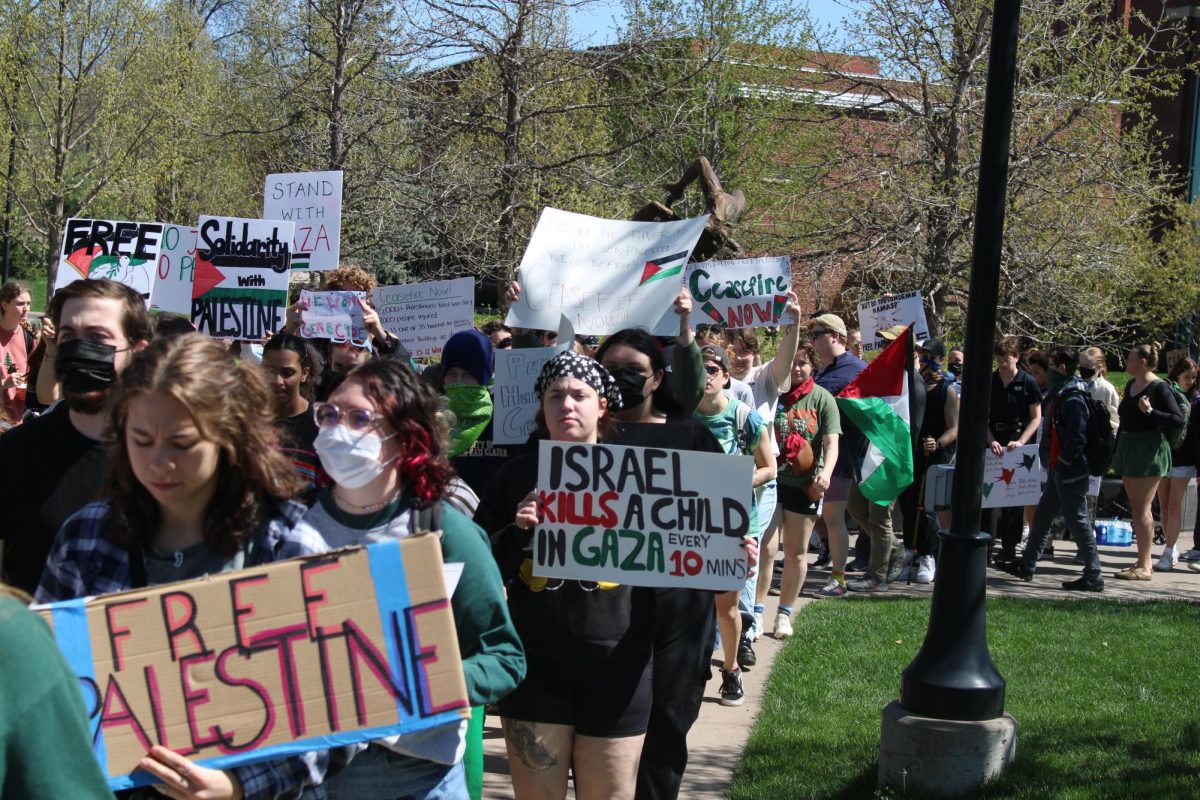Garry Kasparov, a Russian chess grandmaster and political activist spoke about the freedom of expression in the U.S. and across the world. The May 1 forum took place in the Schofield Auditorium and was an evening of impactful discussion.
Kasparov, born and raised in what was then classified as the USSR, was the youngest chess grandmaster and is well known for challenging AI in multiple games of chess. Due to his fame at a young age, he was exposed to the political structure of the USSR and became politically involved at a young age.
He is publicly opposed to communism and was in great support of the collapse of the USSR in 1991. Kasparov is a outspoken critic of Vladimir Putin. In 2010 he was among the creators of a campaign to stop Putin, known as “Putin Must Go.”
He left Russia in 2013 and is yet to return for fear of his safety.
Kasparov was invited to the UW-Eau Claire by the political science department and the Menard Center for Constitutional Studies, which works to bring impactful and important speakers like Kasparov to campus. Menard Center Director Eric Kasper said the university attempted to bring Kasparov to campus for several years.
“With our center, as well as the university, being an important place for the discussion of these types of ideas and these types of rights and what it means for those rights to be protected,” Kasper said. “So I think the fact we’re able to bring in a speaker who’s well known [when discussing] these issues, that is really helpful in this discussion.”
Kasper was also the moderator of the event and led the night with questions selected from by the Menard Center and from audience submissions. Topics like the war in Ukraine and individual freedoms were discussed in length.
Kasparov said growing up in the USSR impacted his view on American Politics. He discussed perspectives and how that applies to both freedom and activism in great lengths.
“There’s a big debate about what democracy is. I think it’s a lot of people who were born and raised in this country,” Kasparov said. “They all appreciate the freedom that they think are just granted to them by the rights of their birth, that’s the blessing of being born in the free world. I come from the other side of the world.”
Kasparov’s outside perspective spoke to the audience, leaving members with more open minds like psychology professor April Bleske-Rechek who felt moved by the discussion.
“It’s refreshing to have somebody else’s take on it. I lived through it as a child. The Cold War, but it’s certainly never heard about it from the Russians’ perspective. I was talking to somebody once arguing that Russians are so forced about how to think, that they don’t know what they think,” Bleske-Rechek said. “And I’m pretty sure he offers a convincing case that Russians know what they think.”
Kasparov discussed his support for Ukraine and talked about how this impacts the entire world.
“Anywhere in the world where democracy is suffering a setback. It hurts us here or other way around,” Kasparov said. “If we are losing some of the democratic values in this country we send the wrong message, and again, it flows around the world.”
Kasparov was the final speaker for the Menards Center this year, but they intend to bring more speakers to campus next year.
Leick can be reached at [email protected].








